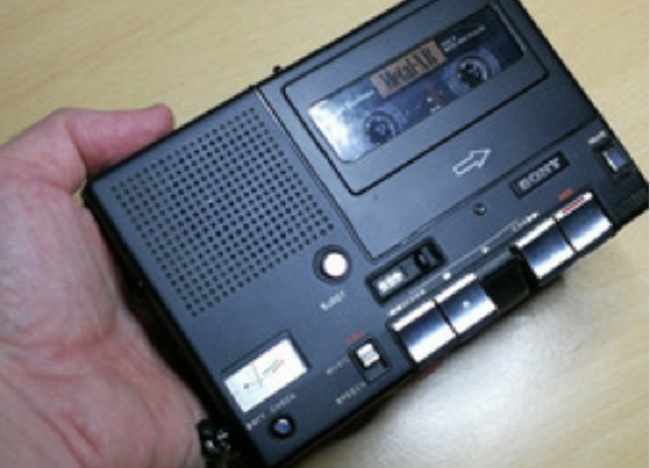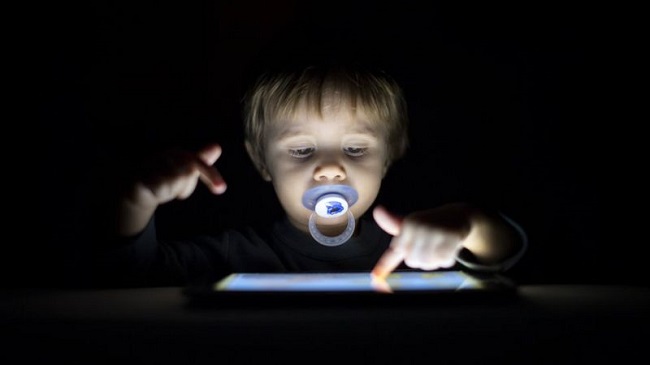Carmelina comments with alarm to the grandson while they wait in line to buy at the pharmacy:
-What a shame, so young and look how it melted!
-?
-That’s just talking mi’jo, he’s lost!
-No grandma, she’s talking on the phone.
This 72-year-old Cuban has not been the only one to make mistakes when seeing people who apparently speak to themselves while walking or waiting.
The technological leap has been great and overwhelming, especially for those born in the so-called analog age, when cell phones, tablets, the Internet, virtual reality and other advances were still seen as science fiction.
But Grandma Carmelina’s years have not overshadowed her spark and when they returned home, after searching for a while, she called her grandson and solemnly handed him an artifact:
-My love, I have been listening to The Beatles for days, put me there “Let it be”.
The young man contemplated the object placed in his hand as if a scorpion waved its tail there or as if a tiny ET emitted unintelligible signals between the lines of life and destiny drawn on his palm.
He had never interacted with a cassette recorder.

The boy also did not know about brooder pins (to hold assholes), or rotary telephones, nor did he imagine how to turn on a television if it was not with a remote control, much less improve reception by reorienting a metal dining tray or a coat rack as an antenna.

Never in his life had he written a letter, put it in an envelope, stamped it, and dropped it in a mailbox. Nor had he received one like that, much less a telegram.
There are many definitions and labels that are used today to identify generations based on their interaction with technologies: from the so-called silent generation -those born approximately between 1925 and 1945- to Millennials, Generation Z and Alpha, natives digital.
But labels are not very important. Each generation lived its time and enjoyed it in its own way, without being better or worse than the previous or the next.
However, experts have scored something against those who now encourage a good part of each day next to the screens: the “digital natives” are the first children who have an IQ lower than their parents.

It is a trend that has been documented in Norway, Denmark, Finland, the Netherlands, France and other countries, and that neuroscientist Michel Desmurget, director of research at the French National Institute of Health, argues widely.
Dr. Desmurget assures that digital devices are seriously affecting the neural development of children and young people. “The time spent in front of a screen for recreational reasons delays the anatomical and functional maturation of the brain,” he says.
Of course, it is impossible to generalize because there are many conditions and mediations. At the same time, it is worth noting that digital natives have important visuospatial skills as well as to move quickly and efficiently from one task to another – what some call multitasking – to interact in networks, and almost innately relate to new ones. technologies in a fluid way, as an inherent part of their lives and contemporaneity.
Grandma Carmelina is clear about it, but is not self-conscious. Every time he gets stuck in front of the laptop, he asks for help and finally gets away with it.
Anyway, when she wants to keep a phone number or other information that is really important to her, she writes it down on a piece of paper and then puts it in a notebook.

Those who are familiar with the digital world since birth, will be able to show their future children and grandchildren photos and videos even of their own arrival in the world, or, at least, of their first moments. Practically its entire existence has been documented by countless photos and selfies, which will help the memories and memory.
This is not the case with Carmelina, who keeps printed photos, in black and white, and sometimes contemplates for a long time when she thinks no one is looking at her. She keeps them in a box along with a couple of letters, which make her feel privileged, with that quiet pride that fireflies must feel because of their little bellies of light.
“Because there is no way to read in the handwriting of someone you love those words that move your soul. There you who missed it, who never played hide and seek or gave a kiss in the cinema while Julio Iglesias sang on the screen that life is still the same.
“I know it’s not the same, but hey … I danced it, or there is no one to take it away from me,” Carmelina says to the grandson and continues to choose the rice.














